Week 6 Term 1 2022

Dear Rosary Community
Last week we celebrated Ash Wednesday with class liturgies. Pope Francis announced Ash Wednesday, as a Day of Fasting and Prayer for Ukraine. Below is prayer shared on Ash Wednesday for Ukraine and for all people experiencing conflict –
A prayer for Ukraine
Loving God
We pray for the people of Ukraine
for all those suffering and afraid,
that you will be close to them and protect them.
We pray for world leaders,
for compassion, strength and wisdom to guide their choices.
We pray for the world
that in this moment of crisis.
we may reach out in solidarity
to our brothers and sisters in need.
May we walk in your ways
so that peace and justice
become a reality for the people of Ukraine
and for all the world.
Amen
This year, Mrs Sita Catalano is leading the development and integration of the Digital Technologies curriculum at Rosary School. After the very successful 2021 Quiz Night we purchased some robots and it was fantastic to see the Year 3 children use their coding skills to move the robots around the gym. Thank you to Mr Simon Coad who supported Sita and the Year 3 teachers to begin their journey of working with these devices. I look forward to Rosary being represented by a group of Year 3 children at the Robocup competitions in 2022.
On Tuesday this week the Year 5/6 children participated in the Catholic School’s cricket carnival. It was a fantastic day for our students. It was great to see them enjoying the sunshine, socialising, being physically active and trying something new. Days such as these strengthen communities and create lasting memories. Thank you to Brenton Campbell, Sita Catalano, Andy Kent and Maria Boccaccio for their organisation and to our parents and staff who supported us by assisting with supervision of a team throughout the day.
Some comments from the children:
“My highlight of the cricket carnival was winning a game” – Lucija
“I enjoyed the cricket carnival because I had lots of fun being with my friends and played lots of cricket” – Bella
“I had lots of fun playing different schools and moving around” – Jack
“I loved the carnival because it was fun and was not all about winning or losing. We got to see new schools and people” – Zara
“I did quite enjoy the carnival (I really didn’t want to go) because my team was very supportive and co-operative” - Megan
“Everyone played fairly” – James
The next Catholic School sporting event will at the aquatic centre where some select students will participate in the Catholic Schools swimming carnival later this term.
As COVID restrictions continue to be eased, I look forward to many more incursions, excursions and community events.
Regards
Susan
Recent News
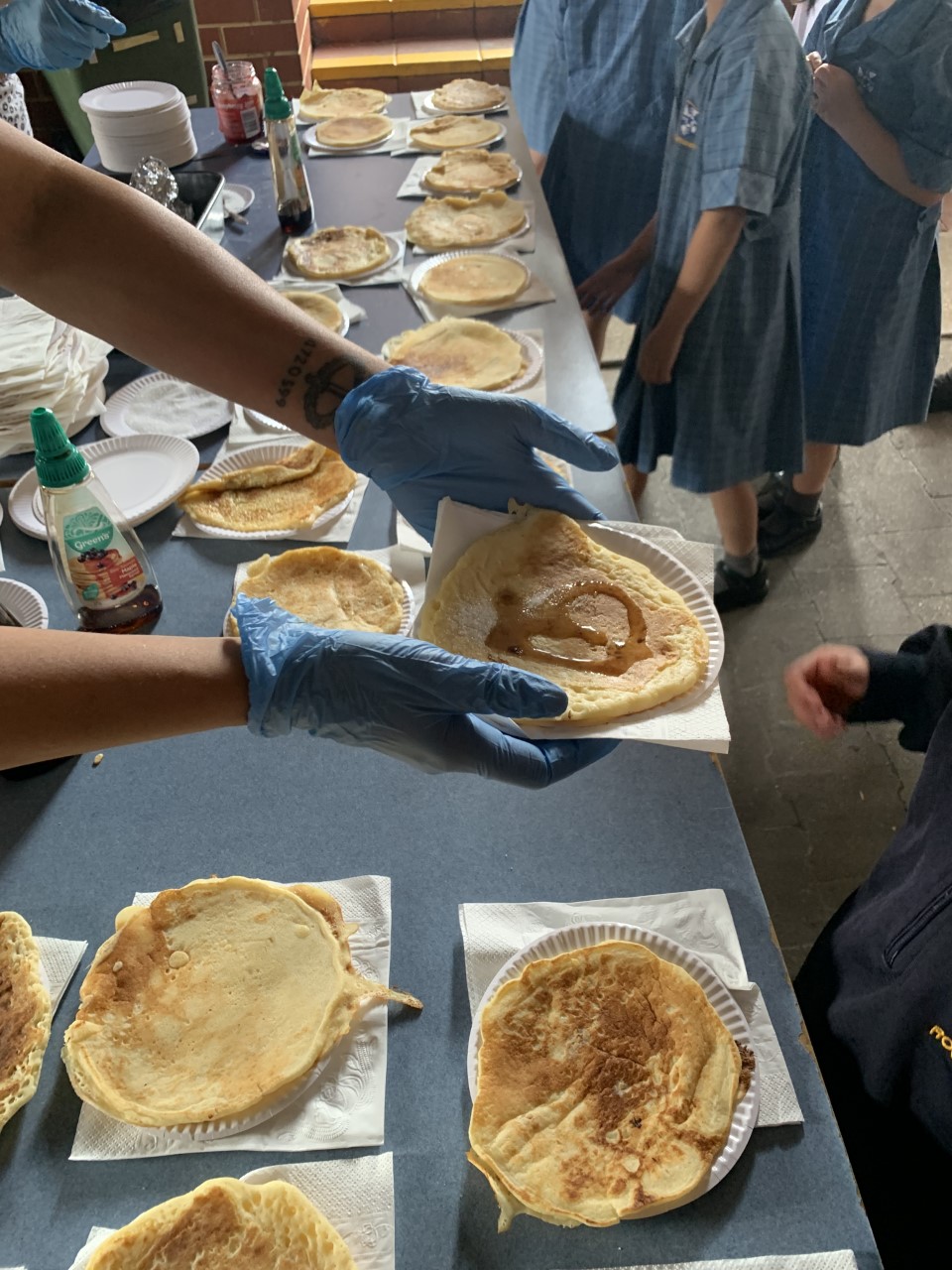
A very big thank you to the team of parents who helped make Shrove Tuesday a huge success. We made close to 500 pancakes for students and staff to enjoy. Thank you also to all of the families who donated a gold coin to kickstart our Project Compassion fundraising efforts for 2022. Spanning across the six weeks of Lent each year, Project Compassion brings thousands of Australian schools, parishes and supporters together to raise funds for people living in some of the most vulnerable communities across the world. Your donations can help to:
- Improve access to food and clean water
- Support education and skills training
- Help vulnerable communities to increase their income
- Provide training in disaster risk reduction
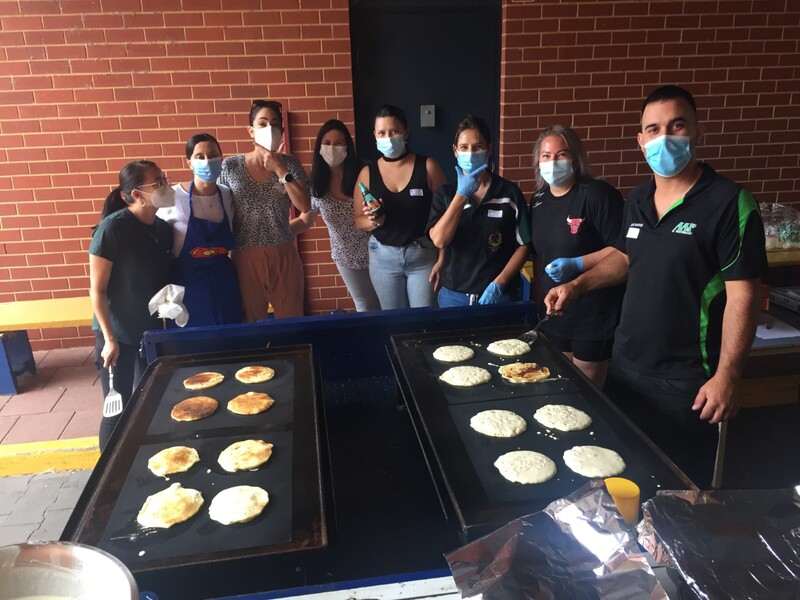

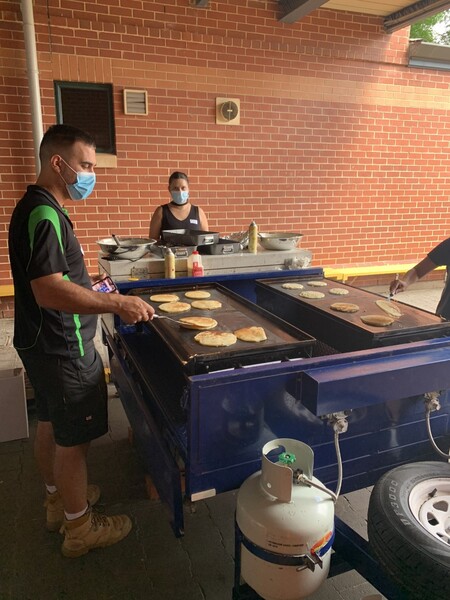

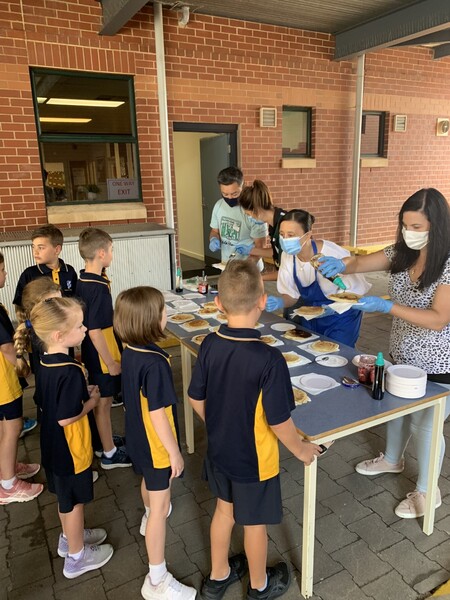
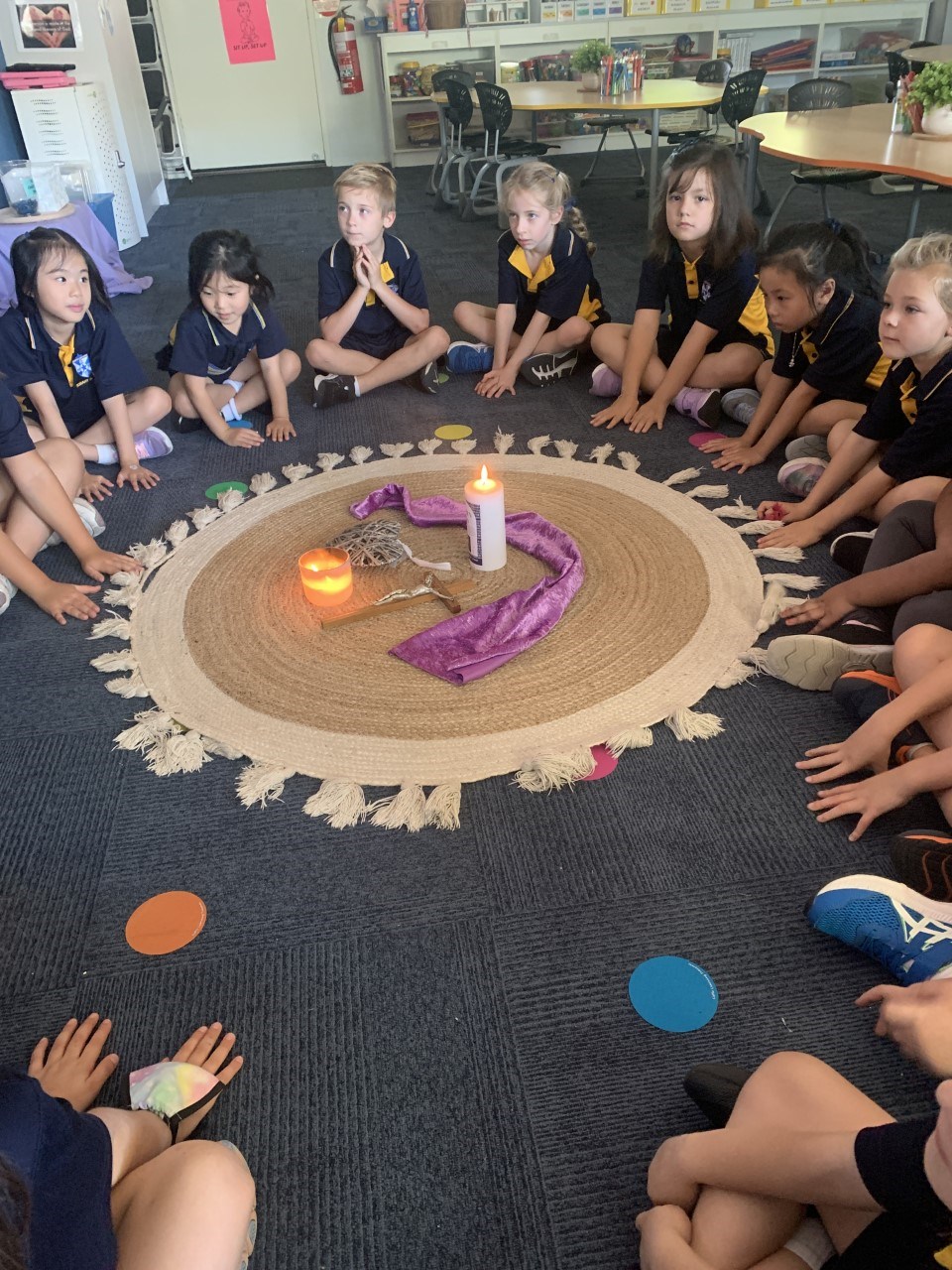
Each class celebrated the beginning of Lent with an Ash Wednesday class prayer. The children were sprinkled with ashes in line with the Archdiocese COVID safe practices. Our class prayer highlighted our theme this year, ‘Awaken Our Mind’ and helped us reflect on how we can shine our light to others following in the footsteps of Jesus. It was a reminder of God’s great love for us, in sending Jesus into the world. Each family would have received a Project Compassion box. Your generous support during Lent can help to change the lives of some of the world’s most vulnerable people. Together, we can make a difference now, and for all future generations.
Lent prepares us for the Season of Easter, the most important time in the Church’s calendar. Fasting helps us remember the needs of the poor, who often have no choice but to go without basic needs such as food, water and shelter. Giving to the poor, or ‘almsgiving’, is a sign of our commitment to justice. It reminds us of our blessings and allows us to give thanks for all that God has given us.
Please find attached family ideas for your interest from the Archdiocese of Adelaide.
To view the Lent Calender, click on the link below:
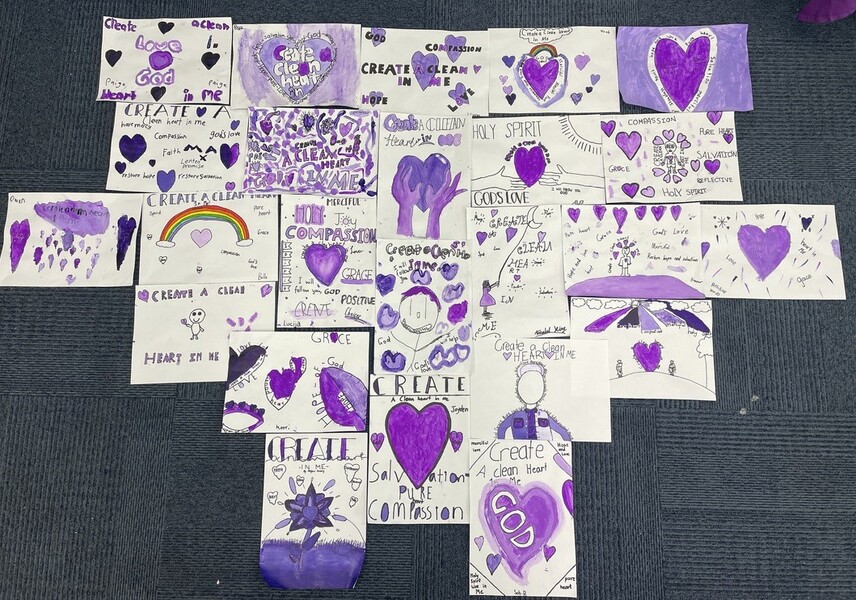
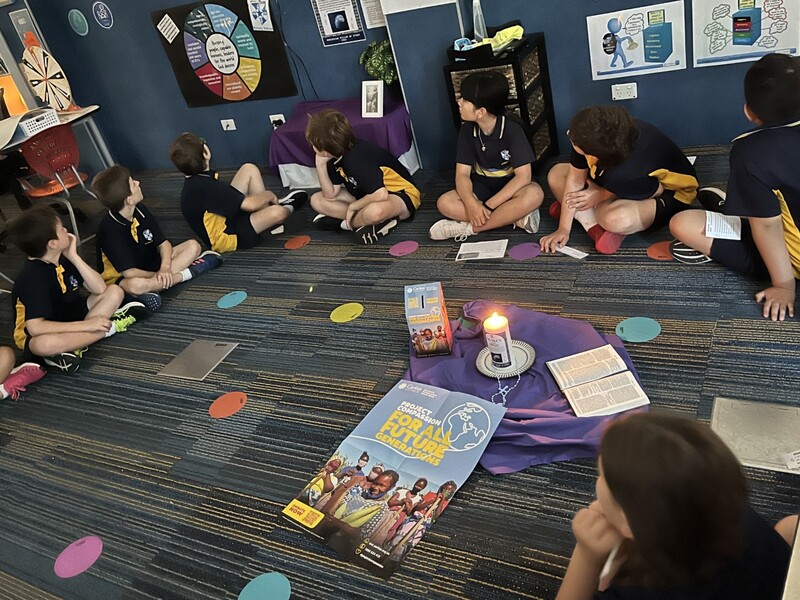
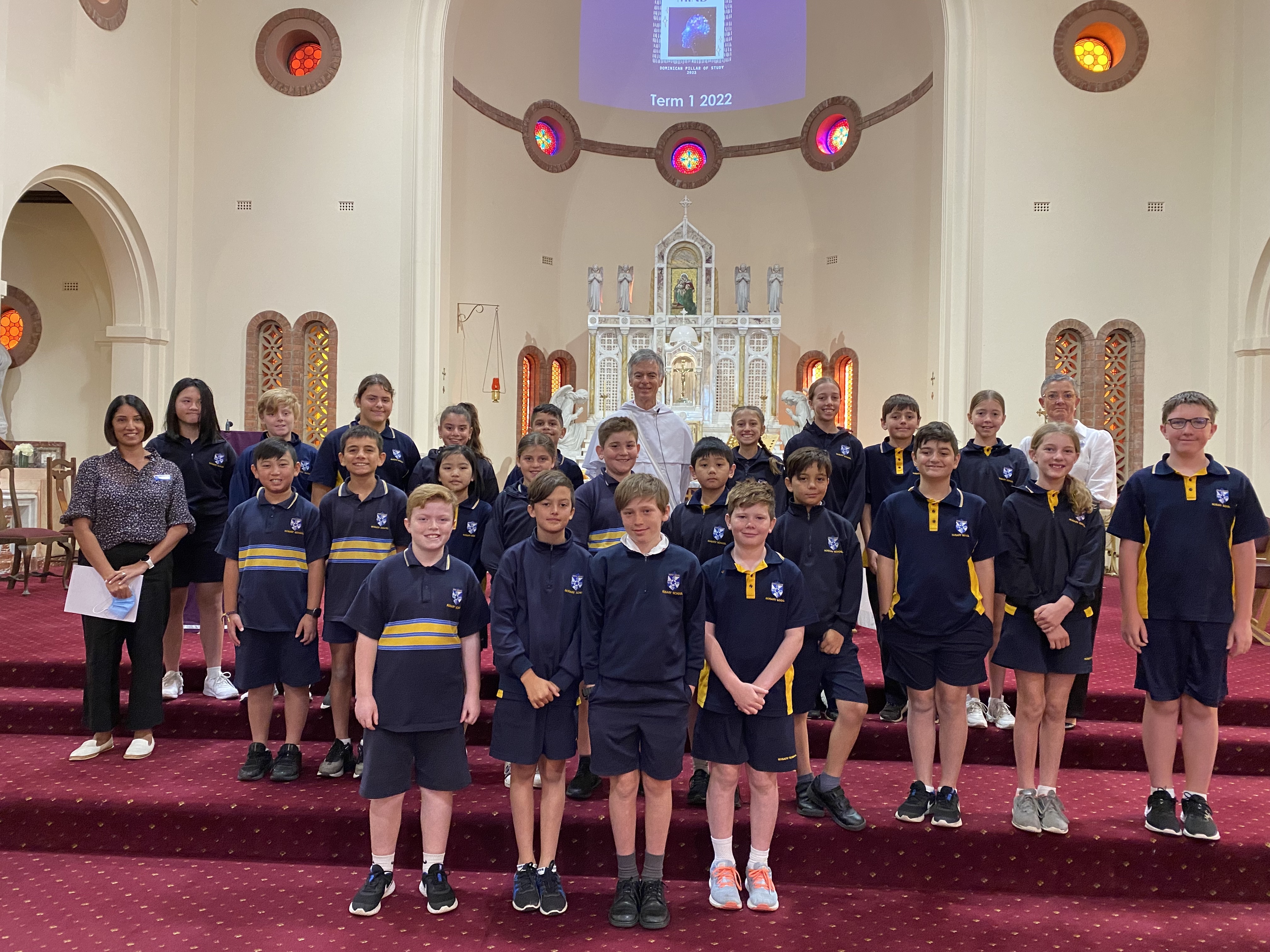
What a privilege it was to celebrate our first class Mass for 2022 at Rosary Church.
Thank you to Year 5/6SC for bringing our theme “Awaken Your Mind” to life. The message in the Gospel story according to Matthew was “do for other people the same things you want them to do for you”. It is through scripture that we “Awaken our Mind” to the meaning and message for us today so that we may live in the image and likeness of God.

We prayer for world peace. In light of current events our children may be exposed to media coverage of natural disasters and other distressing news, like bushfires, floods, earthquakes, wars, terrorism, accidents, violent crime and more. The “Save the Children” website share 5 five tools and tips that caregivers can use to approach the conversation with children: https://www.savethechildren.net/news/ukraine-5-ways-talk-children-about-conflict-0
1. Make time and listen when your child wants to talk
Give children the space to tell you what they know, how they feel and to ask you questions. They may have formed a completely different picture of the situation than you have. Take the time to listen to what they think, and what they have seen or heard.
2. Tailor the conversation to the child
Be mindful of the child’s age as you approach the conversation with them. Young children may not understand what conflict or war means and require an age-appropriate explanation. Be careful not to over-explain the situation or go into too much detail as this can make children unnecessarily anxious. Younger children may be satisfied just by understanding that sometimes countries fight. Older children are more likely to understand what war means but may still benefit from talking with you about the situation. In fact, older children will often be more concerned by talk of war because they tend to understand the dangers better than younger children do.
3. Validate their feelings
It is important that children feel supported in the conversation. They should not feel judged or have their concerns dismissed. When children have the chance to have an open and honest conversation about things upsetting them, it can create a sense of relief and safety.
4. Reassure them that adults all over the world are working hard to resolve this
Remind children that this is not their problem to solve. They should not feel guilty about playing, seeing their friends, and doing the things that make them happy. Stay calm when you approach the conversation. Children often copy the sentiments of their caregivers – if you are uneasy about the situation, chances are your child will be uneasy as well.
5. Give them a practical way to help
Support children who want to help. Children who have the opportunity to help those affected by the conflict can feel like they are part of the solution. Children can create fundraisers, send letters to local decision-makers or create drawings calling for peace.
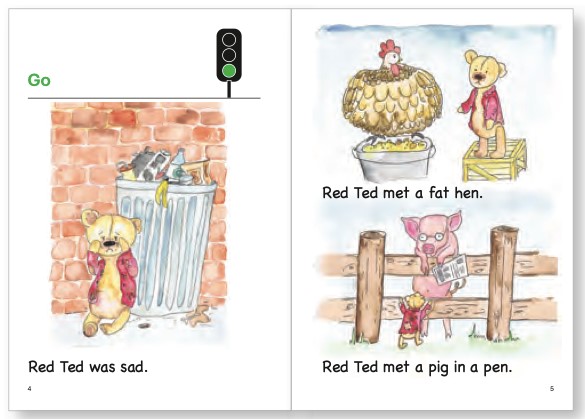
The Reception and Year 1 teachers have continued to implement our new literacy strategy with the support of our literacy coach, Linda Clune. Classes have been involved in explicit teaching of synthetic phonics every morning, following a systematic approach.
Many parents in Year 1 would have noticed a change in how reading books are distributed to the students so we have provided you with more information in this newsletter.
What are decodable texts?
Decodable texts are simple books that are written for the beginning reader and contain the specific grapheme-phoneme correspondences students have learned. This provides learners with the opportunity to use their developing segmenting and blending skills to read words in order to develop automaticity, or the ability to recognise words quickly and effortlessly, and experience independent reading success.
Decodable texts encourage children to sound out words using decoding strategies rather than guessing from pictures or predicting from other cues. They can be introduced once beginning readers have learned some simple grapheme-phoneme correspondences and can blend from left to right.
All books and text are ‘decodable’ in the sense that they can be read, but only if the reader has sufficient reading ability for the complexity of the text. For beginning readers, the only books that are truly decodable are those that contain the alphabetic code they have learned.
How can we develop “reading reflex” in students?
The type of reading material we first give to students sets their ‘reading reflex’, the habit of using knowledge of letter-sound relationships as the first strategy for reading unfamiliar words. Decodable readers that enable students to ‘sound out,’ rather than guess, unknown words develop this reflex and lead to more successful independent reading. Mesmer (2005) found that children were more likely to apply their phonics knowledge, read more accurately, and needed less assistance when reading decodable books.
Do teachers use other types of texts in their classrooms?
Decodable texts are not the only texts to be included in the beginning reader’s diet. Teachers and parents should read high quality children’s literature that contains more complex vocabulary and sentence structures with students every day. This gives children the opportunity to hear good reading models, as well as develop the vocabulary and syntax that will support their reading development
The above visual in an example page from an InitialLit reader series Red Ted.
Would you like some more information?
We have a Parent Information Session on Wednesday, May 11th at 7.00 pm with Linda Clune which will provide more information on the strategy we are using at Rosary School.
Information has been sourced by Linda Clune from the Five for Five Website

As we focus on building awareness and creating action around ecological sustainability, the whole school will once again participate in Clean Up Australia Day on Friday, March 18th. Each class will be allocated an area to clean up. Some year levels will be cleaning up our school and others will be venturing off site cleaning up our local streets.
As part of our Catholic mission, we are all called to ecological conversion so your voluntary action on this day is vital. Please consider being involved on the day with your child’s class/classes as this event will not be able to occur without your help. Volunteers are required to have the Catholic volunteer clearance and be COVID-19 double vaccinated. If you could help out, it would be greatly appreciated. Please contact your child’s class teacher via Seesaw or email:
seva.maitianos@rosary.catholic.edu.au
Thank you
Ecological Awareness and Action Team

Have you ever wondered why.........faith fact of the week.
Faith Fact Have you ever wondered...Lent.
Rosary School, Prospect
Important Dates
Family Reconciliation Evening 6 pm-7 pm
Harmony Celebration Day
Year 5/6 Camp
Palm Sunday
Sports Day (Santos Stadium)
Good Friday
Easter Sunday
Earth Hour -Saturday 26 March

Earth Hour Link with Countdown:
Soccer Registration 2022

Newsletter Subscription

If you would like to receive our newsletter, visit our webite and subscribe.

Social